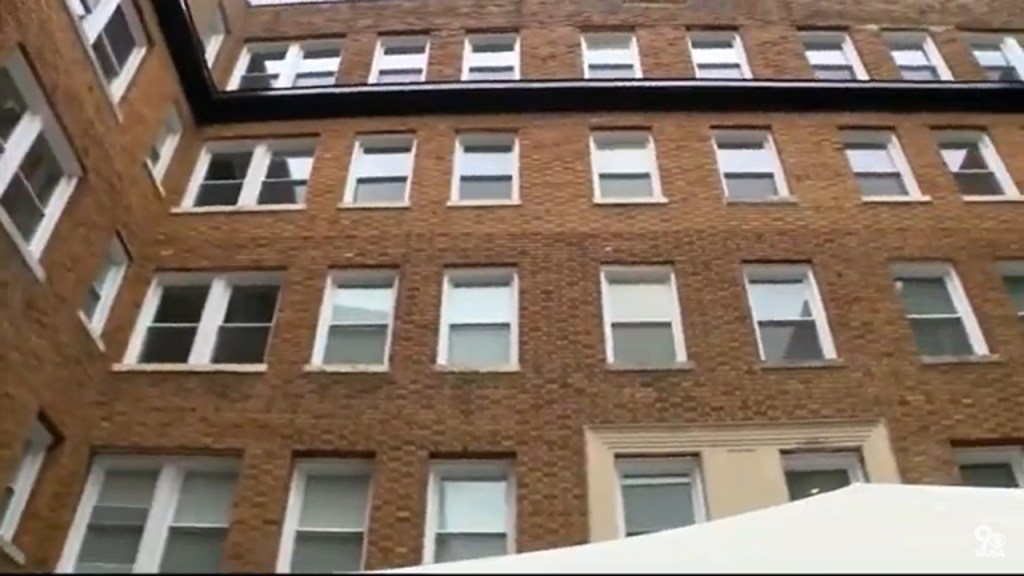Howard, Amazon renovate low-income housing complex after former residents allegedly pushed out
Amazon's Housing Equity Fund underwrote the 80-unit Howard Manor renovation with a low-interest loan of $31.3 million to restore the edge-of-campus complex.
Howard University and Amazon teamed up to renovate 80 units at a low-income housing complex on the edge of campus that university officials and others showed off Friday.
Amazon’s Housing Equity Fund underwrote the Howard Manor renovation with a low-interest loan of $31.3 million. According to The Washington Post, employees and low-income families were forced out of the rent-controlled building over five years ago as part of plans to restore and sell the decaying complex.
Amazon’s affordable housing initiative invests in such housing to alleviate concerns that the megacorporation’s presence in the Washington area will elevate house prices and cause evictions of lower-income residents.

“There was a time when Howard Manor was a jewel on Georgia Avenue,” Howard University’s president, Ben Vinson III, told those gathered. “We are standing on the foundation of new hope … and new community promise.”
Officials tied the initiative to Democratic Mayor Muriel Bowser’s long-standing objective of creating 12,000 more affordable housing units in Washington, D.C., by 2025. University authorities shared on Friday that two of the building’s previous inhabitants would return once repairs are completed.
The rehabilitation of Howard Manor began in 2021, when Howard collaborated with UIP Cos., a real estate investment business, to renovate the structure. UIP committed to transforming Howard Manor into a mixed-use building featuring ground-level retail and storefronts.
The structure originally opened its doors in 1950 and has long provided low-cost lodging for graduate students, seniors, young faculty members and others associated with Howard University.
However, as the region surrounding the HBCU gentrified and property values skyrocketed, the revered institution began to sell real estate to relieve some of its financial burdens. Selling vacant buildings often yields more money than selling ones that are still occupied, so Howard sought to relocate dozens of low- and moderate-income tenants in 2017.
Vinson said the development project is a shining example of what is possible when public-private partnerships work, noting that it would provide affordable housing to dozens of Washington families.
Studios and one- and two-bedroom units will be rented to families earning 60 percent or less of the city’s median family income. According to federal government limitations, that equates to an annual income of around $85,400 for a family of four.
Shontá High was among onlookers drawn to Howard Manor on Friday. High’s apartment building in the Park Morton public housing complex, less than a mile away, is being demolished as part of the capital city’s controversial New Communities Initiative.
The city initiated the effort in 2005 to address the issue of redeveloping public housing units without displacing inhabitants, pledging to preserve every public housing unit in the program’s four communities while developing alternative, inexpensive housing choices.
High expressed concern about the commitment to demolish the old buildings and relocate occupants to new mixed-used complexes — and how long it could take before she can move into whatever replaces Park Morton. On Friday, she and her daughter, Amarissa, 8, took time to look inside closets at Howard Manor’s newly remodeled apartments.
Anthony Freeman, an assistant vice president and special assistant to Howard’s president, said the decision to make the building affordable at 60 percent of median area income was made collaboratively and was based on what the university and Amazon considered to be in line with the type of workforce that building stakeholders hope to see in the complex: university faculty, hospital workers and possibly some graduate students.
Most of Amazon’s housing equity funds have been used to build or preserve affordable homes for households earning 60 to 80 percent of the area’s median income, excluding some of the District’s poorest inhabitants, who do not earn enough to qualify for apartments like those at Howard Manor.
Several former Howard Manor residents claimed the tactics to convince residents to leave were severe, forcing some families to leave the area — or the city altogether — in pursuit of more affordable housing.
“They got rid of us so they could do what they were going to do,” said Lestor Liburd, who had lived in the Howard Manor building for over 20 years, The Post reported.
Never miss a beat: Get our daily stories straight to your inbox with theGrio’s newsletter.


